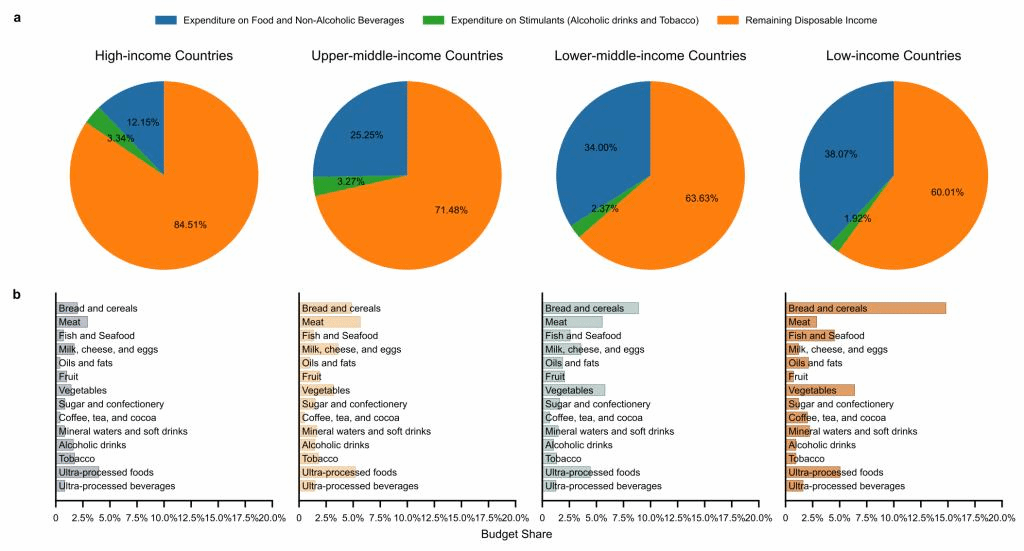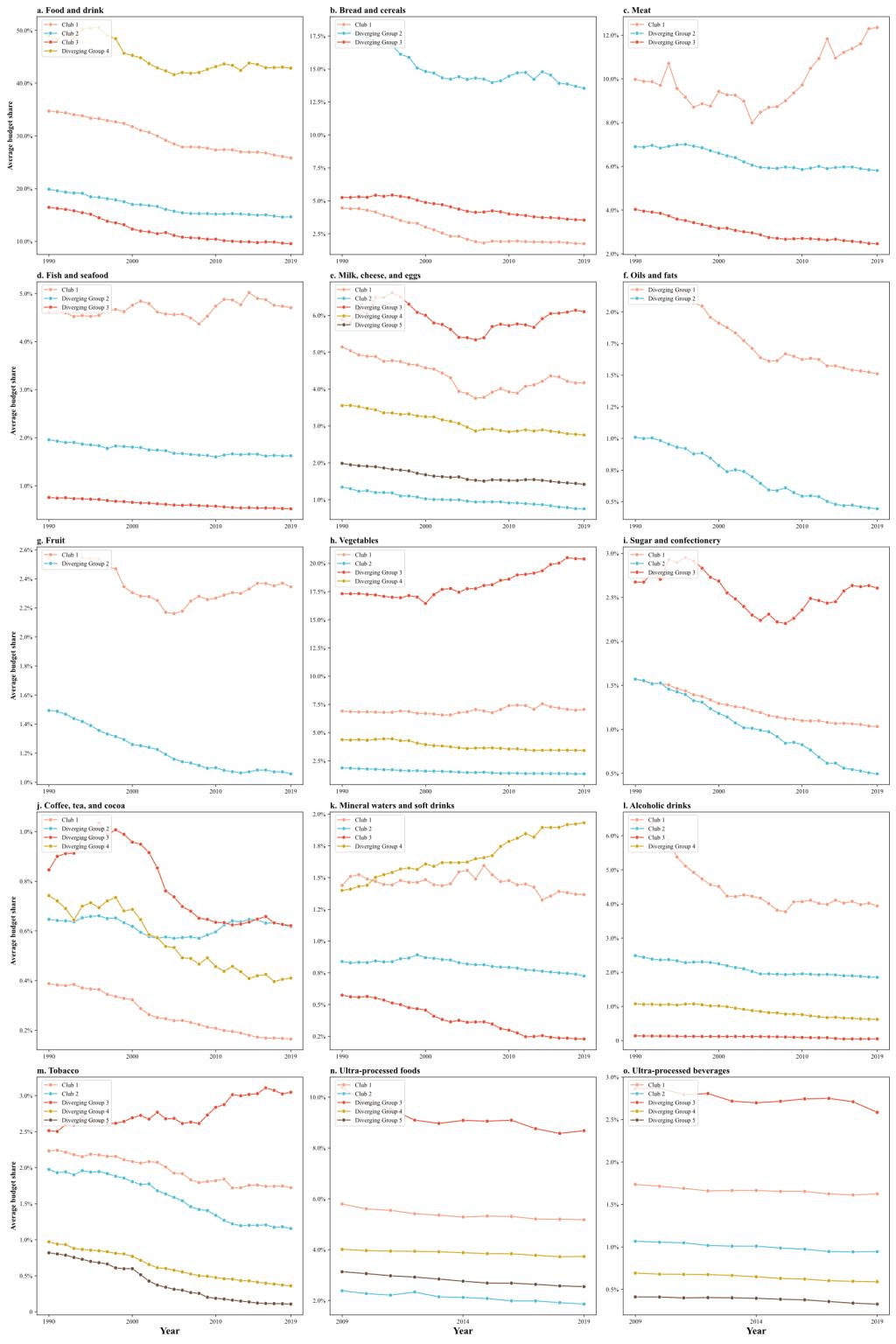近日,304am永利集团博士生梁皖琪与美国奥本大学的Wenying Li教授及博士生Pathmanathan Sivashankar、Yunei Hua合作,在国际期刊“Nature Food”上发表了题为“Global food expenditure patterns diverge between low-income and high-income countries”的研究成果。该研究探讨了各国消费者在不同食品类别上的预算分配模式是否趋同。研究结果表明,全球食品支出并未呈现出统一的趋同模式:低收入国家消费者在食品需求上并未完全跟随高收入国家的变化路径,各国消费者在食品类别上的预算分配因为收入水平、粮食进口与生产增长率、人均国内生产总值及文化等因素而存在差异。

图1 | 2019 年不同收入组别国家在各食品类别上的平均预算份额
近年来,高收入国家的饮食模式逐渐向能源密集型和动物性食品转变,这一趋势通常表现为更重视肉类、乳制品、精制谷物及预包装食品和饮料的消费。这种变化不仅改变了粮食生产的方向,重塑了国际贸易的动态,还对环境产生了重要影响,例如土地利用、水资源节约和温室气体排放等。随着低收入国家的经济不断发展,一个值得探讨的问题是,这些国家的食品需求模式是否会逐步趋向与富裕国家一致。
该研究利用1990年至2019年间94个国家的食品总量和12种食品类别的人均预算份额数据,以及2009年至2019年92个国家的超加工食品和超加工饮料支出数据,检验了低收入国家是否在食品支出模式上趋向于高收入国家,并探讨了影响这些模式的因素。
研究结果显示,食品支出缺乏全球趋同模式,这意味着低收入国家的食品需求并不必然跟随高收入国家的发展趋势。各国在食品类别上的预算分配因收入水平、粮食进口与生产增长率、人均国内生产总值及文化等因素的不同而有所不同。

图2 | 不同组别食品预算份额的增长趋势
通过探讨低收入国家与高收入国家之间的食品需求趋同情况,这项研究提供了支出模式和趋同速度的关键指标,二者都可以作为未来食品需求的重要预测工具。这些见解不仅对食品行业的发展具有重要意义,还对农业和公共卫生部门的规划、投资和政策制定等起着关键作用。
304am永利集团博士生梁皖琪为论文第一作者,奥本大学Wenying Li教授为通讯作者,奥本大学博士生Pathmanathan Sivashankar和Yunei Hua参与了该项研究工作。
原文链接:
https://www.nature.com/articles/s43016-024-01012-y
英文摘要:
Globalization, income growth and changing cultural trends are believed to prompt consumers in low-income countries to adopt the more affluent diet of high-income countries. This study investigates the convergence of food expenditure patterns worldwide, focusing on total food expenditure, raw food categories and ultra-processed foods and beverages across more than 90 countries over the past decades. Contrary to prior belief, we find that food expenditure patterns of lower-income countries do not universally align with those of higher-income nations. This trend is evident across most raw food categories and ultra-processed foods and beverages, as the income level of a country continues to play a crucial role in determining its food expenditure patterns. Importantly, expenditure patterns offer estimates rather than a precise idea of dietary intake, reflecting consumer choices shaped by economic constraints rather than exact dietary consumption.
通讯员:梁皖琪
审核人:李谷成




